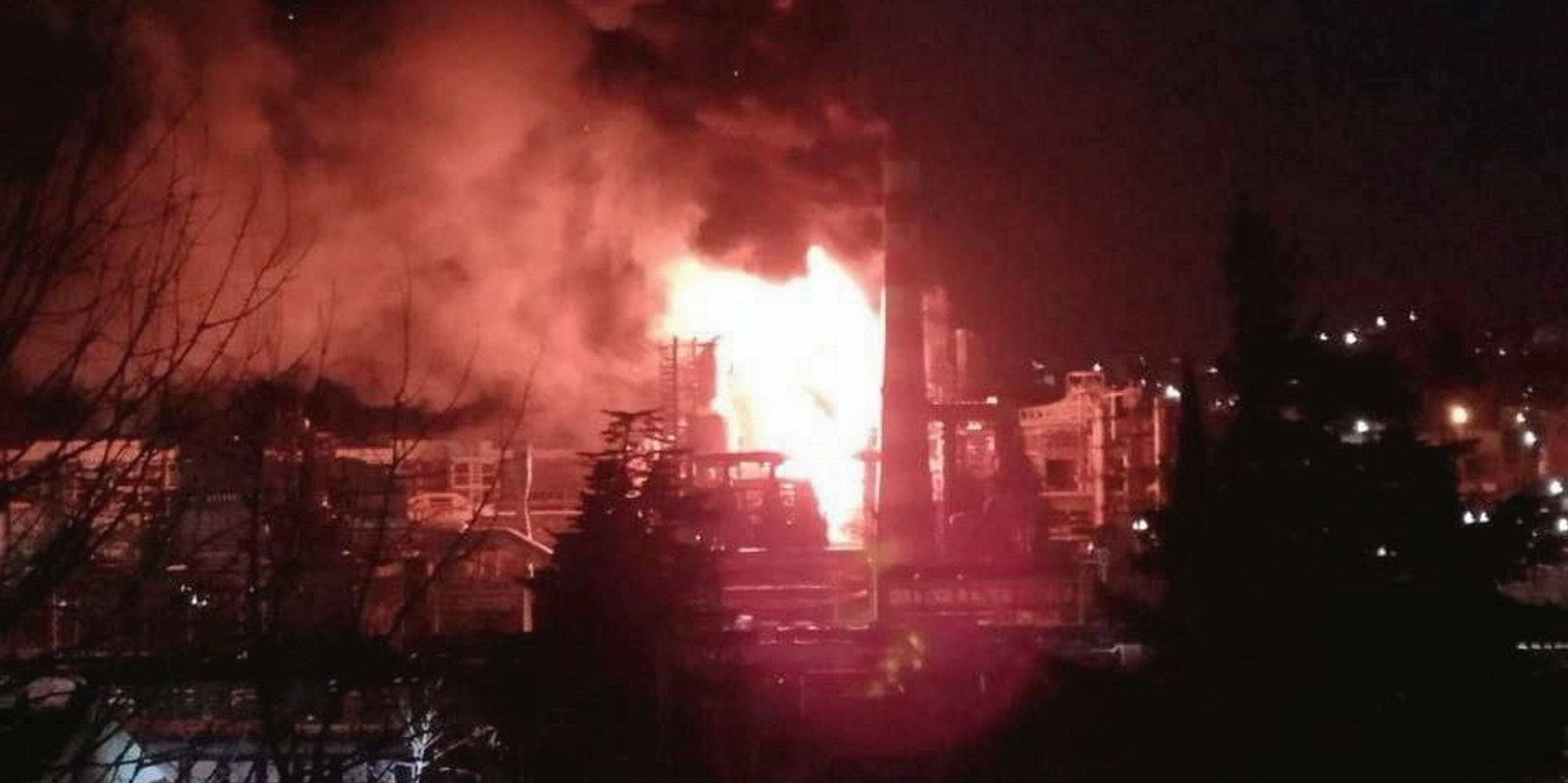Ukrainian drone attacks on Russian refineries threaten to disrupt global supplies of diesel and other oil products, the International Energy said on Friday.
Attacks since January have hit 11 sites with a production capacity of more than 2m barrels per day as Ukraine targets Russian revenues from the sale of refined products.
Industry reports suggest more than 800,000 bpd have been wholly or partially shut as a result of the attacks, the IEA reported in its latest monthly report.
“Ukraine’s stated aim to deprive the Russian government of revenue from product exports has refocused attention on market consequences of widespread loss of product supply,” said the report.
It added: “The shutdown of these refineries or units for between four to eight weeks for repairs could mean a significant loss of diesel and naphtha supplies to international markets.”
It said the lack of official data from Russia made it difficult to assess the impact of any production cuts.
But it said oil product shipments were down 200,000 bpd in March compared with the previous month, stemming from “repeated Ukrainian attacks on Russian refineries plus maintenance work”, it said.
The return of refineries to service is complicated by international sanctions that limit access to refining equipment and technology.
On the flip side, the Russian network was flexible enough to make up for losses at other refineries, the IEA said. Data does not yet show any cuts in diesel exports.
The rise in refinery attacks led to Russia increasing its crude exports in March by nearly 400,000 bpd compared with the previous month. Moscow benefited from higher prices despite tougher sanctions enforcement by the US.
$60 price cap for crude
The main export grade Urals was being shipped at around $68 a barrel in March, up from about $62 two months earlier. The ESPO grade shipped from the eastern port of Kozmino stood at nearly $79 a barrel, the data showed.
G7-linked insurers and shipping companies would breach sanctions if they were involved in crude shipments above the $60 price cap for crude imposed in December 2022.
The discount for barrels delivered to India over Middle East barrels widened, “reflecting an increasingly unfavourable trading environment for Russian crude as the US ramped up sanctions on ships, owners and any buyers of crude using sanctioned vessels”, said the IEA.
Prices for premium products, like diesel, remained on average below the cap price of $100 a barrel. Diesel was being sold at $92.77 a barrel in March, down from $97.50 in February, said the IEA.
Discounted products subject to a $45 a barrel cap, such as naphtha and fuel oil, were generally trading above that level, it said.
The IEA reduced its forecast for global refinery output for 2024 based on lower Russian runs, unplanned reductions from European refineries and slower-than-expected activity in China.
But it still predicted a rise of 1m bpd, down 160,000 bpd from last month’s forecast, to reach 83.3m bpd in 2024.
Read more
- European Union votes to allow member states to ban Russian LNG imports
- Opec: Oil demand remains robust despite price rises
- Houthi attacks open Red Sea as Russian oil shipment corridor as Western and Chinese owners pull back
- Exhausted Ukrainian seafarers trapped at sea amid fears of being called up to fight
- Tanker owner Mansimov fails in bid to overturn $240m payment order to Socar






